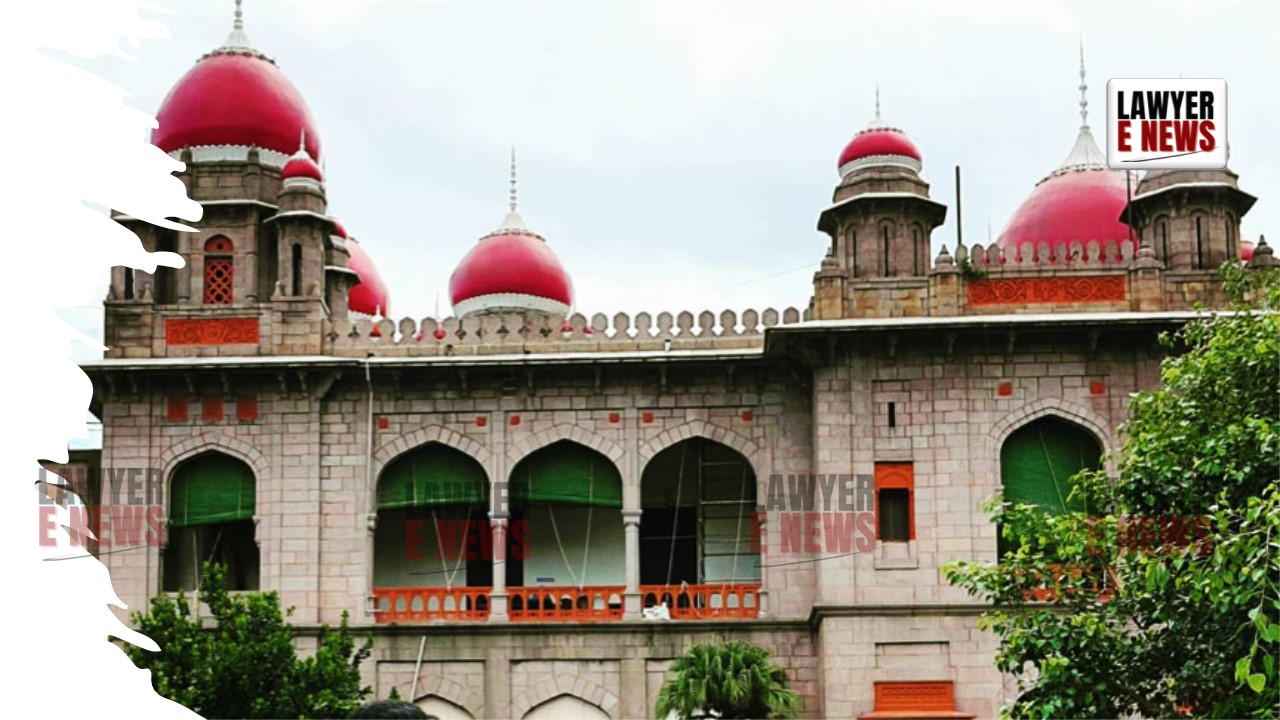-
by Admin
15 February 2026 5:35 AM



Telangana High Court, in Mohd Abdul Rafeeq Qurashi v. The State of Telangana, Criminal Petition No. 10075 of 2024, ruled that the petitioner, a customer in a brothel case, would face prosecution under Section 370(A)(2) of the Indian Penal Code (IPC) for engaging in sexual exploitation of trafficked persons. The Court, however, quashed the charges under Sections 370(3) of the IPC and Sections 3 and 5 of the Immoral Traffic (Prevention) Act, 1956, as they were found inapplicable to customers.
The case arose from a police raid conducted at Smart Look Wellness Spa and Family Saloon in Hyderabad on February 26, 2024, where multiple accused, including the petitioner, were found on the premises. The petitioner was arrested under allegations of engaging in prostitution, and charges were framed against him under Sections 370(3) and 370(A) of the IPC and Sections 3 and 5 of the Immoral Traffic (Prevention) Act. The petitioner sought quashing of these proceedings, arguing that as a customer, he should not be liable under the cited provisions.
The Court was tasked with determining whether the petitioner, as a customer, could be prosecuted under Sections 370(3) and 370(A) of the IPC, as well as Sections 3 and 5 of the Immoral Traffic (Prevention) Act. The petitioner contended that these provisions were meant to target traffickers and brothel keepers, not customers.
The key issue was whether Section 370(A)(2) of the IPC, which criminalizes the exploitation of trafficked persons, could apply to a customer. The Court noted that for Section 370(A)(2) to be invoked, it must be shown that the customer had knowledge or reason to believe that the person was trafficked. The Court found sufficient prima facie evidence to continue the prosecution under Section 370(A)(2) based on the petitioner’s presence at the scene and other circumstances.
"The customer’s liability under Section 370(A)(2) of the IPC arises when there is knowledge or reason to believe that the person is trafficked. In this case, the petitioner’s presence at the brothel and other evidence suggest such knowledge."
The Court observed that Sections 3 and 5 of the Immoral Traffic (Prevention) Act are aimed at brothel owners, managers, or persons who procure or induce women for prostitution. As the petitioner was merely a customer, the Court held that these sections were not applicable.
"Sections 3 and 5 of the Immoral Traffic (Prevention) Act are specifically intended for those managing or facilitating prostitution. A customer does not fall within this ambit."
The Court also quashed the charge under Section 370(3) of the IPC, which deals with trafficking of more than one person. The Court held that there was no evidence to suggest that the petitioner was involved in the trafficking process itself, as his role was limited to that of a customer.
Quashing of Charges Under Sections 370(3) IPC and 3, 5 of the Immoral Traffic (Prevention) Act:
The Court quashed the charges under these provisions, holding that they were intended for traffickers and those managing prostitution operations, not customers.
The Court found sufficient evidence to continue the prosecution under Section 370(A)(2) IPC, which criminalizes the sexual exploitation of trafficked persons. The Court held that the petitioner, by being present at the scene, could be reasonably believed to have engaged in such exploitation, and thus the proceedings should continue.
The Telangana High Court’s ruling emphasizes the legal distinction between traffickers, brothel managers, and customers in cases of sexual exploitation. While the Court quashed charges under the Immoral Traffic (Prevention) Act and Section 370(3) of the IPC, it upheld the prosecution under Section 370(A)(2) IPC, holding that customers who knowingly exploit trafficked persons can be held criminally liable.
Date of Decision: September 21, 2024
Mohd Abdul Rafeeq Qurashi v. The State of Telangana
